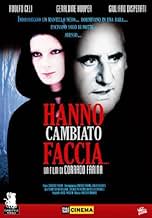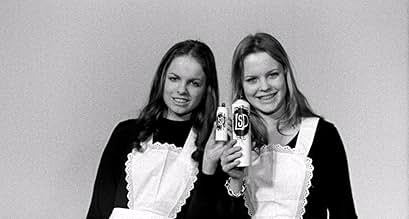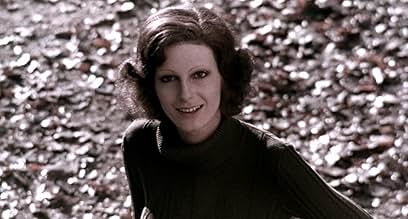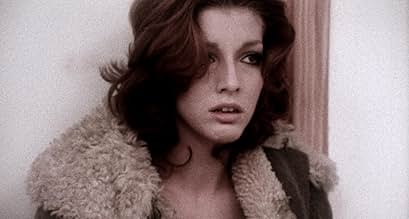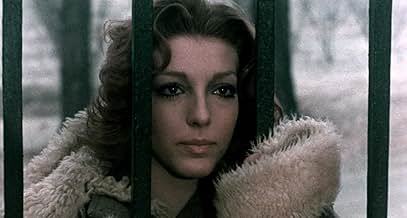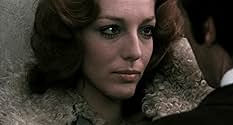Füge eine Handlung in deiner Sprache hinzuIn this allegory on capitalism, director of a known car corporation invites one of his employees to his country villa to give him the good news. He just got promoted. However, the old man is... Alles lesenIn this allegory on capitalism, director of a known car corporation invites one of his employees to his country villa to give him the good news. He just got promoted. However, the old man is not what he seems and promotion has a price.In this allegory on capitalism, director of a known car corporation invites one of his employees to his country villa to give him the good news. He just got promoted. However, the old man is not what he seems and promotion has a price.
- Auszeichnungen
- 1 wins total
- Alberto Valle
- (as Giuliano Disperati)
- Priest
- (Nicht genannt)
- Scientist in spot commercial
- (Nicht genannt)
- Actor in commercial spot
- (Nicht genannt)
Empfohlene Bewertungen
They Have Changed Their Face is not going for subtlety, and in fact assiduously avoids it. One of its strengths is how intentionally, unabashedly on the nose it is with its core analogy and themes. The script compares vampirism so closely with capitalism and consumerism from the opening minutes that the analogy is almost erased, with the two represented things being almost literally one in the same. The movie's "Dracula" figure is an oligarch, owner of a vast network of companies and puppet master of a global network of politicians, artists, and religious leaders. He is also a fascist, which, especially combined with the hypercapitalism dimension, makes the movie even more anti-conformist.
It's a sad commentary on the current state of humanity how well this movie has aged. It perfectly foreshadowed the rise of 21st century fascism and late-stage capitalism, and even the current social and individual psychosis of "mass narcissism" demonstrated on social media platforms, through so-called reality shows, and in a certain president and among his sycophants (not to mention, you know, the whole fascism thing), etc. Mass narcissism is the actual term used by the oligarch-vampire, whose name is hilariously literal: Mr. Nosferatu. A speech, or maybe more accurately, sales pitch, he gives our Johanthan Harker figure earlier in the movie about the masses, and his plans for them-is practically the dictionary definition of fascism. Those plans include fomenting that mass narcissism by, among other things, manipulating and compelling consumers to buy what he wants them to buy. We even learn in the opening minutes of the movie that Van Helsing has sold out and works for Mr. Nosferatu. That is sooo dark and savvy, and reflects the level of astute satire at work here.
That astuteness and directness is also evident during a business gathering filled with overlapping conversations. Among others, we catch this moment: "Bergman and Godard are slaves! The only free cinema is advertising. Advertising cinema is cinema vérité." So, it turns out that what we're watching, while ostensibly a "horror" movie-it certainly has some elements of horror-is closer to European art cinema, including the particular kind of social and political satire we see in some of the films of that era.
They Have Changed Their Face is also well-paced for the most part, has a good score, and is genuinely entertaining on the fundamental level of story, with a bit of conspiracy plot and a decent amount of suspense.
Two shortcomings I would mention: There are ways in which the story, plot, and directing could have brought in some additional traditional horror and vampire elements, which I think would have been a strength and not a distraction with respect to the art film ethos and themes (e.g., fate vs choice) of the film. In addition, the ending, while adequate, felt like a couple of shots-not even necessarily scenes-were left on the cutting room floor which could have clarified in just a few seconds of screen time some plot points and main themes.
That said, this film fits the definition of a hidden gem. It's pretty well-rated on IMDb and Letterboxd, but is nonetheless underrated. I've never seen it included in any lists of overlooked flicks, top vampire movies, and the like, and as far as I've seen it's never included in discussions of vampire movies. While utterly different from vampire floicks like Dracula's Daughter (1936), The Vampire's Ghost (1945), Curse of the Undead (1959), Blacula (1972), Ganja & Hess (1973), and Let the Right One In (2008), I would include They Have Changed Their Face among those as one of the most unusual vampire movies out there.
As of July 2025, They Have Changed Their Face is available to stream for free on Tubi.
Side note re. The capitalism theme: The Satanic Rites of Dracula (1973) has the count posing as a property developer in modern London, but the movie does nothing particularly interesting with that odd idea.
Wusstest du schon
- WissenswertesDebut role and only career nude scenes for Francesca Modigliani. She made one more film after this and then quit acting.
- Zitate
Actor in commercial spot: A shower isn't a shower if your water pipes don't contain A-1 Tonic.
Actress in commercial spot: With A-1 Tonic, you're younger, stronger ... happier to live and love!
Actor in commercial spot: [letter "A" in Italian, sighed as an ecstatic "Ah!"] A-1 Tonic caresses your skin.
Actress in commercial spot: [also with the ecstatic "Ah!"] I'd also like to feel A-1 Tonic caress my skin.
Actor in commercial spot: You can't, unless you surrender. without shame, young and naked.
Actress in commercial spot: I am young, and I'm also...
[Alberto turns off water, cuts off ad]
- VerbindungenSpoofs Das Lied der Straße (1954)
Top-Auswahl
- How long is They Have Changed Their Face?Powered by Alexa
Details
- Erscheinungsdatum
- Herkunftsland
- Sprache
- Auch bekannt als
- They Have Changed Their Face
- Drehorte
- Chieri, Torino, Piemonte, Italien(Giovanni Nosferatu's house)
- Produktionsfirma
- Weitere beteiligte Unternehmen bei IMDbPro anzeigen
- Laufzeit
- 1 Std. 36 Min.(96 min)
- Farbe
- Sound-Mix
- Seitenverhältnis
- 1.85 : 1

